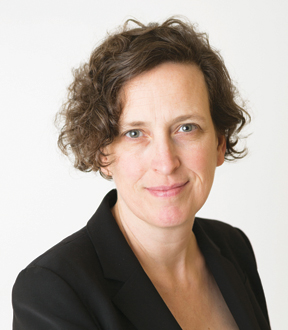Display Ban Fails Core Mission | Editorial

MORE POWER TO THE LIBRARY STAFF in Hurricane, UT, who have sparked an important conversation in response to a ban on displays about LGBTQ topics. They have been fighting this decision, which contravenes the Library Bill of Rights and departs from widespread practice around raising awareness of resources for underserved or historically marginalized populations. Their professional bravery is welcome, and, unfortunately, needed in the critical work of advancing inclusion and providing access points that can be lifelines.
In 2017, staff were directed to make a Pride display more “neutral” and then to avoid displays about LGBTQ topics in the future. When that ban was extended this year to buttons stating “Ask me about LGBTQ reads” for Pride Month, staff rebelled. Library clerk Ammon Treasure took the matter to Human Resources, then to the press. Taking this to the court of public opinion raised awareness of the ban, created momentum for open discussion about the issues, and very publicly demonstrated that the fight is on.
The display ban on LGBTQ topics extends to all eight libraries that make up Southwest Utah’s Washington County Library System, and director Joel Tucker has even suggested the possibility that all displays on any topic may be banned. “I just like to maintain a neutral perspective,” he said, according to theSt George News. “I don’t want people to feel unwelcome in the library.” [See Lisa Peet’s full coverage for more detail.]
Tucker, who has been director for five years, said that the ban is in response to complaints. As anyone who works in libraries knows, complaints happen, as do direct challenges. And, as LJ sister publication School Library Journal has reported on self-censorship and extra challenges, for example, there is a trend toward shying away from potential controversy. Displays and programming can fall into a gray area even when a collections policy is clear. Fortunately, there is a vast literature and guidance to rely on here, from the likes of Pat Scales and organizations such as the American Library Association’s Office for Intellectual Freedom and the National Coalition Against Censorship (which sent a letter to Tucker on August 16 protesting the ban). While it can be difficult and local situations heated, the field strives to land on the side of inclusion.
Not so here. Tucker’s stance seems excessively reactive and discriminatory. Such suppression has a chilling effect on intellectual freedom and the process of understanding our society. It begs questions about who is making decisions, whose input matters, and what could be compromised next.
Tucker has couched his decision as a desire for “neutrality”—almost as if the term is a shield to hide behind. But the concept is very problematic in this situation. Neither avoiding nor embracing controversy can be considered neutral. Avoiding it only looks that way (and only to some people). “Mistaking the status quo for ‘neutral’ happens, but it doesn’t mean it’s actually neutral,” notes LJ executive editor Meredith Schwartz on the topic. “The status quo got here largely because of decisions that were themselves not neutral.”
Washington County library leadership may view itself as weighing the benefit of the few against a drawback for the many, but in practice, those don’t balance. “Exposure to a display of books that you aren’t interested in, or even find offensive, is a minor detriment compared to the major benefit of being offered a book you need,” notes Schwartz. “Flinching away from something you find distasteful takes a second, but access to information that tells you that ‘you are not alone or broken’ can save lives.”
It’s clear the LGBTQ community is not being served by this decision. It’s also critical to realize that neither are any of the people of Washington County. The idea that the majority benefits by carving away this information is misguided. Serving a group is not the same as making its members comfortable. Everyone is impacted by the suppression of anyone, and when a community refuses to know itself whole, it fails.


ALREADY A SUBSCRIBER? LOG IN
We are currently offering this content for free. Sign up now to activate your personal profile, where you can save articles for future viewing









Add Comment :-
Comment Policy:
Comment should not be empty !!!